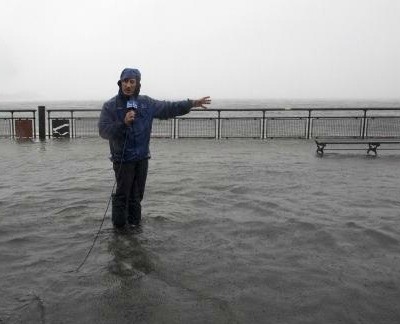Another week has flown by, and storms continue to thrash and
bash New England. Every year there seems to be one area in the nations that is
the hardest hit and media is always there to cover the event. However over the
past few years I’ve just come to expect the media hyping up a storm or an area
that will receive it the majority of the front. I’ve come to expect it and I
don’t necessarily live in an area that receives a ton of snow. This got me
wondering what do those in new England, the area hit hardest by the majority of
the snowstorms this winter have to say about all of the media coverage and the
storms themselves?
“Monster storm Blasts Boston” is the name of the title of a video which can be found on accuwweather.com talking about he most recent storm in the new England Boston area. From the outside looking in on one of these storms one could easily assume that everything influencing a person’s daily life would be impacted by the storm. One could see cars crashed into snow banks or houses covered up past their ground floor windows. I would assume mass panic in the streets after hearing statements such as “record snowfall in Boston” or “ 6 feet of snow.“ However once the snow clears and news teams start to really report what is happening and not just hyping up the event for ratings.
We can all see that, yes there is a
bunch of snow and one would expect to see cars in snowdrifts along with other
regular winter events, but it is never to the extent that you would expect
after hearing the reports before the storm. After the storm people in the area
are of course interviewed and some of their opinions shocked me. In some
interviews by CNN of course report people stating things along the lines that
the roads are too dangerous to travel on stating that two lane roads are now
one lane and cars are covered with the snow pushed aside by snow plows to make
streets assessable. Some families have stated that their weekly routine has
been ruined by the past 2 weeks of snow. I asked myself when viewing this interview,
this is only one person what does everyone else feel? I expected something
different than what I found.
There is no denying that the
situation in the new England area is a nightmare to say the least, but some
residence in the area are looking at the situation with a little bit of a
positive attitude. WWLP, a news agency
based in spring field Massachusetts but is covering the storm in Boston;
conducted interviews wth people around the city. These people did not seem
upset rather they used statements such as “you’ve just got to deal with it.
There is no point in getting angry.” And “It’s the north what do you expect?”
Now to me its seems that based on this that not everyone is bitter about the
storm. It seems more likely to me that news reporters are finding those they
want to interview that would give them the best possible ratings.
This realization frustrated me a
little if I am to be honest. We expect to receive accurate opinions from a wide
range of individuals in the New England area but we are left with only one view
from one new agency. It isn’t effective reporting just to get the most frantic
person to complain about the storm and then have your audience to assume
everyone thinks that way.
Following all of these interviews
has lead me to realize that in order to get an accurate understanding of any
weather situation its to personally ask someone from that area. They will most
likely give you a non-media influenced answer and show you exactly what really
is happening.
-Adam Gorgos
-Adam Gorgos


